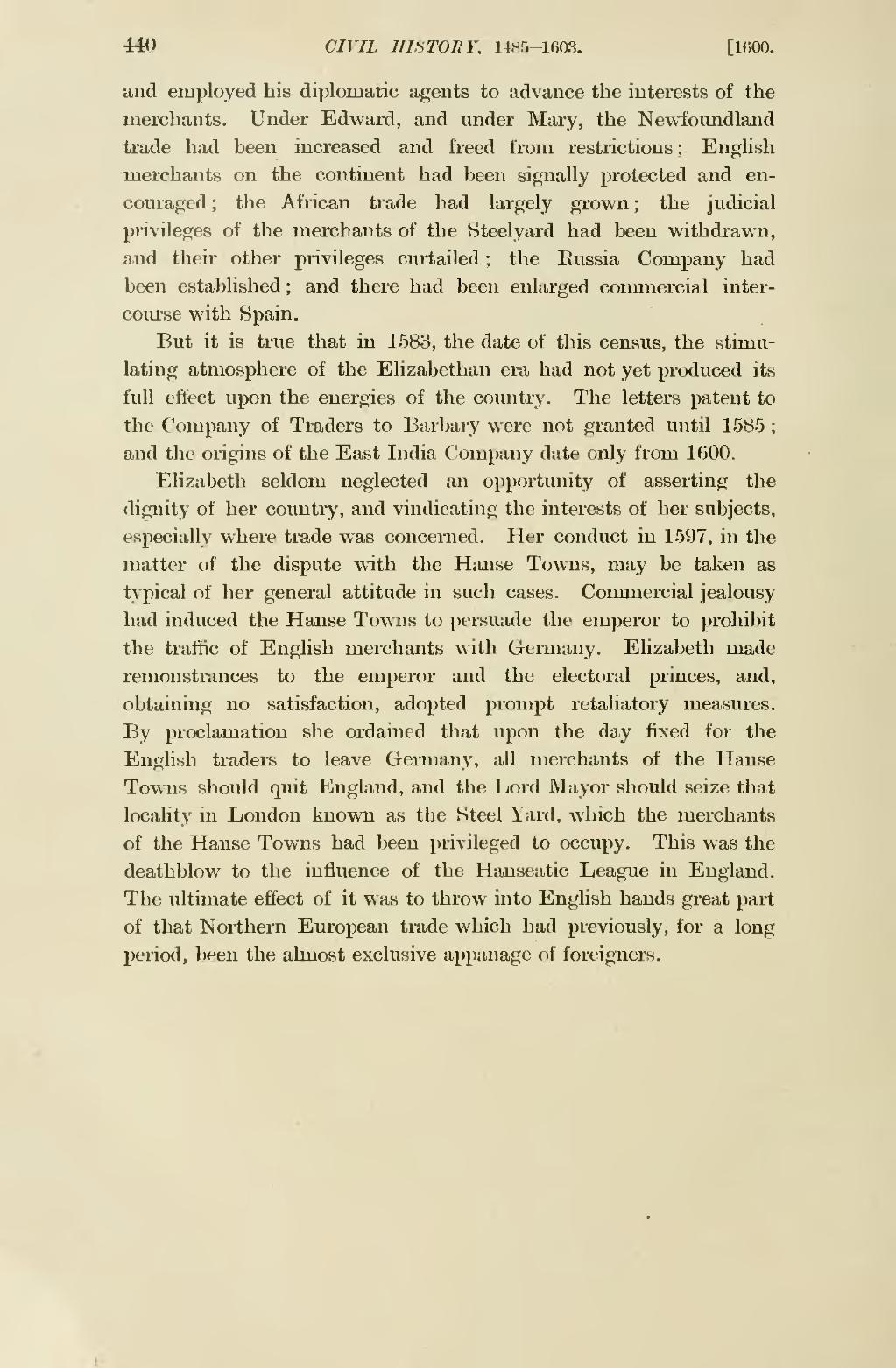and employed his diplomatic agents to advance the interests of the merchants. Under Edward, and under Mary, the Newfoundland trade had been increased and freed from restrictions; English merchants on the continent had been signally protected and encouraged; the African trade had largely grown; the judicial privileges of the merchants of the Steelyard had been withdrawn, and their other privileges curtailed; the Russia Company had been established; and there had been enlarged commercial intercourse with Spain.
But it is true that in 1583, the date of this census, the stimulating atmosphere of the Elizabethan era had not yet produced its full effect upon the energies of the country. The letters patent to the Company of Traders to Barbary were not granted until 1585; and the origins of the East India Company date only from 1600.
Elizabeth seldom neglected an opportunity of asserting the dignity of her country, and vindicating the interests of her subjects, especially where trade was concerned. Her conduct in 1597, in the matter of the dispute with the Hanse Towns, may be taken as typical of her general attitude in such cases. Commercial jealousy had induced the Hanse Towns to persuade the emperor to prohibit the traffic of English merchants with Germany. Elizabeth made remonstrances to the emperor and the electoral princes, and, obtaining no satisfaction, adopted prompt retaliatory measures. By proclamation she ordained that upon the day fixed for the English traders to leave Germany, all merchants of the Hanse Towns should quit England, and the Lord Mayor should seize that locality in London known as the Steel Yard, which the merchants of the Hanse Towns had been privileged to occupy. This was the deathblow to the influence of the Hanseatic League in England. The ultimate effect of it was to throw into English hands great part of that Northern European trade which had previously, for a long period, been the almost exclusive appanage of foreigners.
